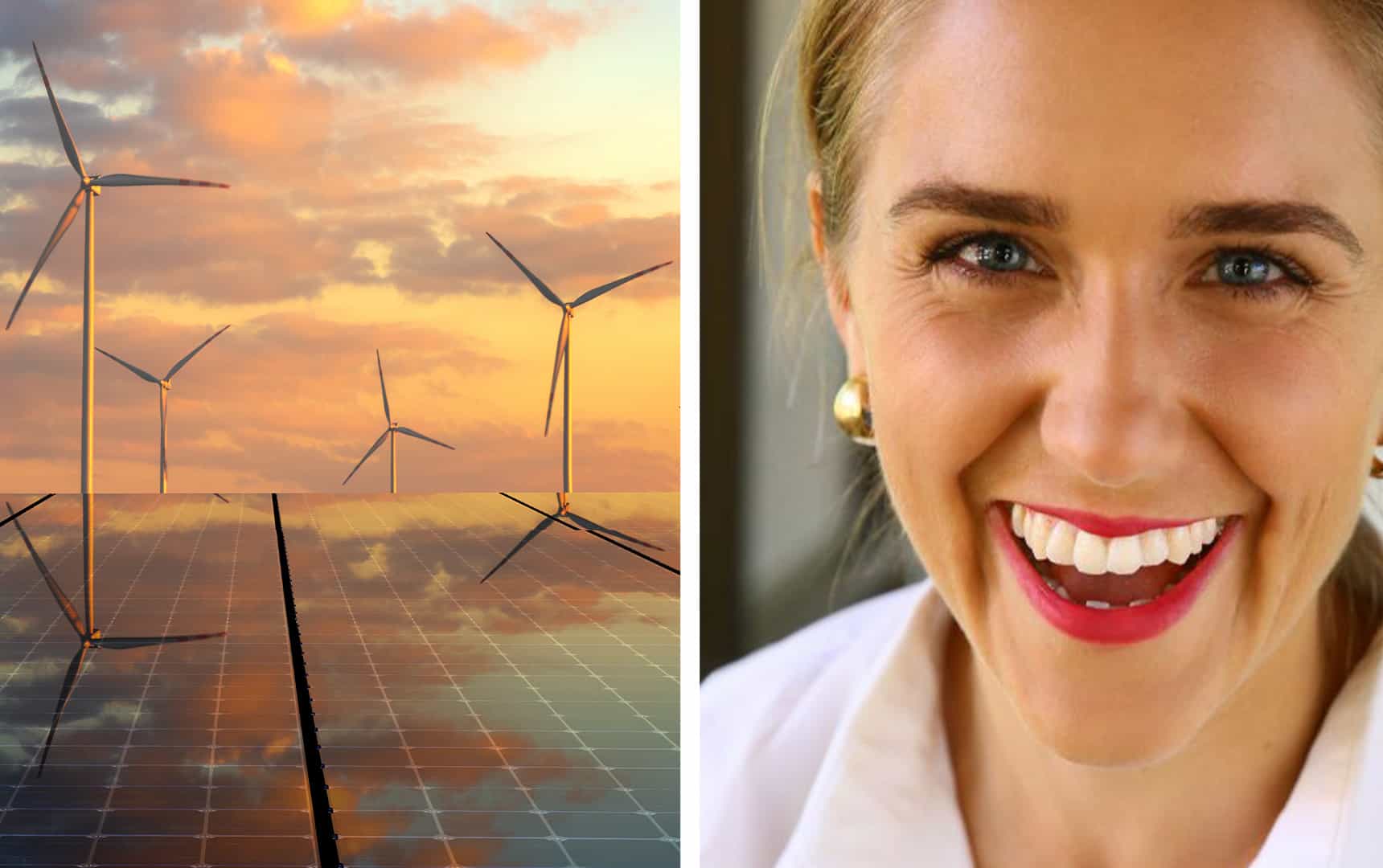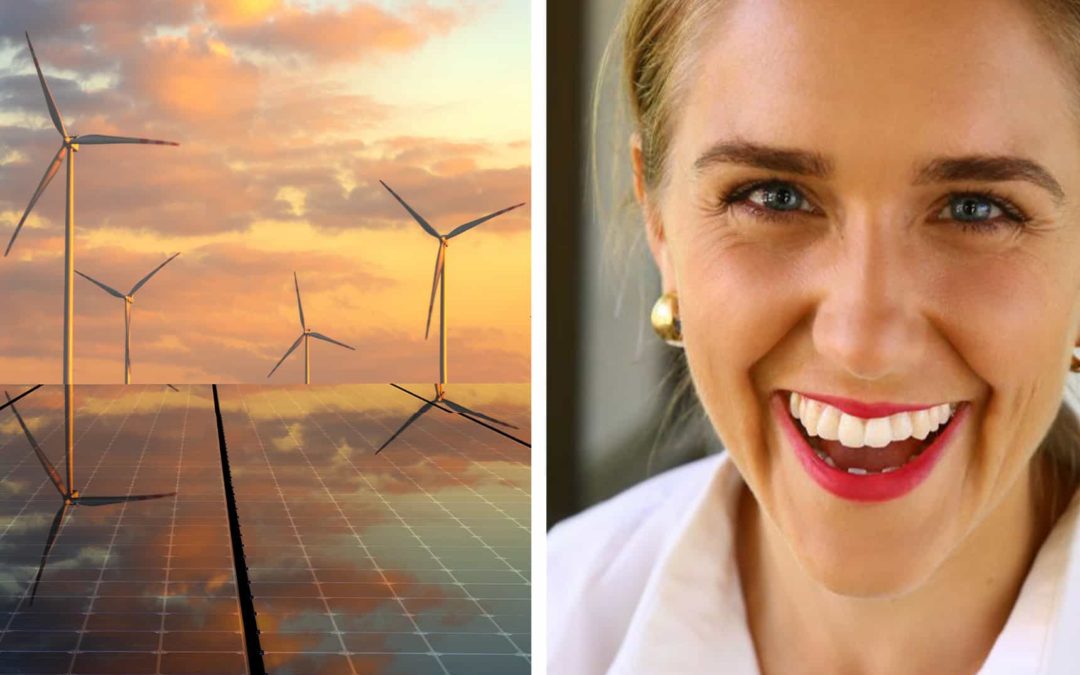
She had not thought that she would get involved in the climate issue. But in 2006, Rebecka Carlsson backpacked with her best friend in West Africa. In northern Mali, near Timbuktu, they saw with their own eyes how a conflict began to build.
“This was the same year that Al Gore and the UN’s climate panel IPCC began to point out that climate change is the biggest threat to world peace. All of a sudden we were in the middle of a situation where we could see the effect with our own eyes.”
Climate change had caused the Sahara to spread, groundwater to drain and food to become increasingly scarce. Mali was already one of the poorest countries in the world and with the increasing desertification, the situation became increasingly tense.
Weapons came down with al-Qaeda-linked groups, from for example Libya, and tribal rivalries that have existed for generations escalated into armed conflict and war. Some years later, the punishment in the al-Qaeda-controlled areas was 100 lashes for listening to music.
“It is not possible to say that the war in Mali only has to do with climate change. But it is one of several factors that come into play, just like in Yemen, Syria, the Horn of Africa and many other areas.”
Stopping and managing the effects of climate change went from something abstract to highly concrete for Rebecka Carlsson and since then she has both committed herself as an activist and devoted her professional life to the issue.
During these almost 15 years, she has, among other things, been a co-founder of a handful of sustainability companies and worked as a political expert for Sweden’s Minister of Climate and Environment and Deputy Prime Minister, including when the Paris Agreement was negotiated.
“In the end, this is only tools for humans”
Singularity University’s education in exponential technologies guided Rebecka Carlsson on a partly new path. How this force can be used to transition into sustainable societies is something she has since lectured on. It is also one of the central themes in her recent book “Exponentiell klimatomställning” (being translated right now into English).
The fact that technological development in many cases is exponential means that it is enormously fast and powerful, but Rebecka Carlsson points out that this does not mean that technology automatically solves the climate issue.
“Ray Kurzweil expresses it as ‘in the end, this is only tools for humans’. The next hundred years will correspond to 20,000 years of technological development. We can use it to manipulate democracies, stimulate mass consumption online and increase the already unrealistically wide economic gaps. Or we can use it to ensure that everyone can eat their fill, gain greater democratic power and create exponentially better climate solutions.”
In the field of technology, this exponential development follows Moore’s law . If we were to reduce greenhouse gas emissions as quickly as this development takes place, we would be done in 5 years and 3 months and be able to devote ourselves to other issues instead, says Rebecka Carlsson.
“The interesting thing is that it is not just technologies that can be developed exponentially. Behavioral changes, value shifts, attitudes and social movements can do so as well. Why, then, would climate change need to be linear and one step at a time?”
From linear to exponential
Rebecka Carlsson believes that we must stop thinking linearly in many different areas, not just in technology, and that an exponential reduction in emissions is necessary.
“To stop climate change quickly enough, and avoid irreversible consequences, we need to keep global warming below two degrees and absolutely try to limit it to below 1.5 degrees. It is possible if we follow something called the Carbon law. This means that globally we need to peak emissions by 2020, halve them every decade and reach zero emissions by 2050.”
Rebecka Carlsson believes that rich countries and entities need to halve their emissions about twice as fast. The entire world economy needs to be completely climate neutral in just three decades. Instead of increasing emissions exponentially, we now need to reduce them exponentially.
“At first glance, it may seem impossible, but when we look around in other parts of society, we soon see that development is much faster in a number of other areas. It is possible to implement this. I see it as we are constantly getting more powerful tools in the toolbox that we can use to transition, reach our climate goals and enable us to continue living in the universe’s perhaps most favorable climate for humans.”
Companies must work with both megatrends at the same time
The subtitle of the book is “How we can stop climate change quickly enough and how to build pioneer sustainable companies” and Rebecka Carlsson has a strong focus on business.
“I claim that the two really big megatrends, the commercially disruptive forces, are the exponential technological development and the transition to sustainability. This is something all companies need to address. Companies that do not incorporate sustainability into their core business will face the same fate as those who missed digitalisation.”
What sustainability as a disruptive force will mean for business development has great similarities with what digitalisation has meant, she says. Previously, only “digital companies” had digitization in the business model itself, while the mainstream companies continued as usual and perhaps added some digitization on top of their already existing business model. But now there is hardly a single company with self-respect that does not seriously shed light on how its own business model needs to be upgraded, given that digitalisation is for real.
“The same thing is happening now in relation to sustainability. Previously, only ‘sustainability companies’ had sustainability at the core of the business, while the mainstream companies continued as usual and perhaps added some CSR project on the periphery of their already existing business model. But soon there will not be a single company with self-respect that does not seriously shed light on how its own business model needs to be upgraded, given that now, sustainability is for real.”
Today, many companies work with this separately, digitization on the one hand and sustainability on the other. Rebecka Carlsson urges to work with them together, to take both megatrends and upgrade the business model in relation to them. This makes companies relevant in the world economy we are now entering.
Business in a big positive confusion
One thing is certain: exponential development will create change whether we like it or not. The most naive thing is to believe that the world will not change. But it is up to us to steer this development in a direction that creates sustainable development.
“I would describe it as the prevailing condition in the business world when it comes to climate and sustainability is a kind of collective, and for the most part positive, confusion. 5–10 years ago, the discussions still revolved around whether the companies would change at all or not. Now the focus has generally shifted from if to how,” says Rebecka Carlsson.
She believes that most companies by now have begun to realize that climate and sustainability is not a minor or transient trend but a megatrend whose implications must be taken very seriously.
“Many companies have also adopted proper goals by now, some have science based targets. But I would say that most people still lack working strategies for the goals they set, hence the collective confusion.”
The climate issue is therefore currently exists in a completely new context. This leads to great confusion but also a solution-oriented and creative phase where the question is, how should we solve it?
“In 2050, we will wake up one morning, drink our morning coffee and the emissions will be zero. What I want to help with is concrete guidance for the business community that shows how to develop solutions and create the sustainable companies of the future.”
“We need to focus on what kind of life people want to live”
In visualizations of various conceivable high-tech futures, scenarios are sometimes painted as shiny floating cities in metal and glass, with flying cars and, more or less, no people. Some may want to live in this type of environment, but many probably dream of something different, Rebecka Carlsson believes.
“When we develop climate solutions, and society in general, it is important to focus on people and people’s different preferences. What is often even more interesting, and more appealing in my opinion, than a purely high-tech vision of the future, is the interconnect between the high-tech and the natural and human. Not least how high-tech can enable even more of natural and human values.”
As an example, she mentions how the use of robotics and sensors can lead to more natural agriculture and forestry where technology replaces excessive use of fertilizers and pesticides.
“Many of us want more time, want to be more with loved ones and devote more time to interests and culture. High-tech solutions can enable a much faster transition taking human needs into consideration, but in ways that involve far less emissions. It is important in the development of these solutions that we focus not only on technological development and the possibilities of technology, but on what people long for.”
The future is already here, it just is not evenly distributed , said sci-fi author William Gibson. Today we have extremely innovative solutions and more are being added all the time. Now we need to make sure that they are used by as many people as possible.
– The dream is to be able to meet the needs of the current generation without compromising the next. I am optimistic that we can do it, concludes Rebecka Carlsson.





